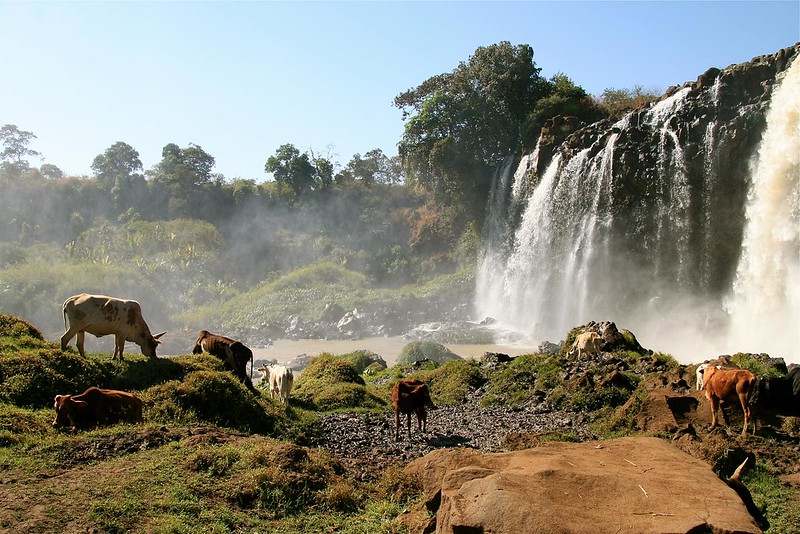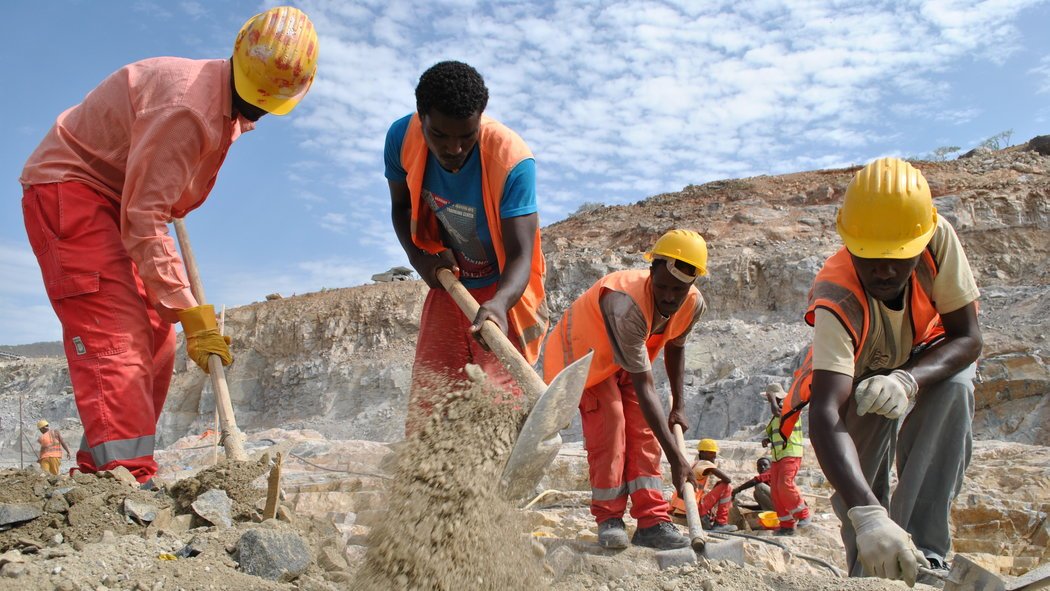
A huge number of studies have indicated that future conflicts in the Middle East and Africa would be a result of water resources. Twenty five years ago, Ismail Serageldin, an Egyptian vice president of the World Bank, warned that wars of the 21st century will be fought over water not land or oil. It is not surprising that previous Egyptian governments and presidents have described the significance of the Nile water to the security of Egypt, and that any alternation to the distribution of the Nile water represents an imminent threat to the nation.
In the 1980’s, President Sadat, for example, declared to go to war against Ethiopia if it attempted to limit Egypt’s share and rights of the river. Currently, in the face of disputed developments with Ethiopia over water shares, President Al Sisi, declared the readiness of the Egyptian army to defend Egypt’s national security inside and outside the borders.
The decade long dispute over the Nile exposes the competing national interests and desires of two nations, Egypt and Ethiopia predominantly, although both states of Sudan are also heavily implicated over. This dispute has culminated, in the last few years, over a project that Egypt qualifies as a national security threat, while Ethiopia describes it as a life-time project resembling the political and the economic ambitions of the country. The Grand Ethiopian Renaissance Dam (GERD), Africa’s potentially most powerful hydroelectric dam, has already put strains on the diplomatic relations among the Nile basin countries; moreover, the on-going development of the dam threatens to catapult the states into a water war if negotiations – mediated by the international community – are not resumed and agreed on before Ethiopia starts its filling stage.
The deadlock lies in the question of who ‘owns’ the Nile? This idea of ‘owning’ can be tackled from two positions: where the Nile’s source and supply stems from and where the river flows or the country with a desert climate so harsh that it renders the Nile water an essential mean of living and security.
The most logical answer would be that the Nile belongs to all the Nile basin states; however, the 1929 Anglo-Egyptian Treaty and the 1959 bilateral treaty grants Egypt and Sudan the full utilization of the Nile waters along with the power to veto any water development project. However, arguing in favor of its own development and pulling its population out of poverty, Ethiopia no longer takes those treaties into consideration.
After multiple talks, rounds and diplomatic delegations between Ethiopia, Egypt, and Sudan over a decade, both Egypt and Ethiopia have signaled the use of force to protect their national interests, while Sudan has long been caught between the interests of the two states. Egypt’s patience in negotiations and intransigence with the Ethiopian government since 2011 has led to the alternation of GERD to a de facto reality. Ethiopia started building the dam at the height of the Arab spring, where the political scene in Egypt deprived it from resuming the talks several times. The longer the negotiations took, the closer Ethiopia moved toward finishing the dam, with only few days left now for Ethiopia to fill the dam in early July.
After declaring the failure of negotiations, Egypt moved toward the international community to help reach a fair agreement before Ethiopia starts the filling phase. Egypt now depends on the United Nations Security Council (UNSC) to stall the GERD from filing, but will the international community be able to reach a solution through the use of diplomatic means, prevent the escalation of the conflict, and resume negotiations? It is very obvious that Ethiopia does not have the will to reach a fair agreement due to the failure of the previous negotiations attempts as a result of Ethiopia’s aggressive stance.
On Friday, in an interview with the Associated Press, the Ethiopian Foreign Minister Gedu Andargachew declared in an interview “For us it is not mandatory to reach an agreement before starting filling.”
Also on Monday after Egypt filed the case to the UNSC, Ethiopia’s state news agency ENA quoted Andargachew the Ethiopian Foreign Minister saying “there are no internal or external forces will stop Ethiopia from realizing the Dam”. It would thus seem that the actions and statements presented by the Ethiopian government predict the failure of any further diplomatic attempts or negotiations over the dam.

Egypt’s current dispersion between securing its western borders from terrorism, supporting the security and the stability of the Libyan government, and trying to resume the filling of the Renaissance dam, negotiations, it seems unlikely for Egypt’s military to intervene in Libya and take any defensive action against Ethiopia at the same time. Indeed, intervening in both countries could make Egypt more prone to vulnerability and national threats. The only possible way to ease the tension at the contemporary moment would be to reach an agreement on the amount of water that will be released downstream from the dam, which rests on the power of the international community to resolve the conflict in a timely manner and resume negotiations in order to avoid a wider conflict in the region.
However, it would not be in the interest of the Ethiopian government to halt the filling of the dam, fearing the rage of the citizens and foreign donors. Although, the Ethiopian government rejects any claim regarding the obtainment of external funds for the dam, the Middle East Institute reveals that the Chinese government provided a significant amount of international finance to the hydropower infrastructure. In 2017, Egypt Today reported that the Ethiopian government is soliciting funds from Qatar. Despite the lack of official statements by the Ethiopian government regarding receiving funds, one has to keep in mind how Ethiopia will be able to export its energy to the demanding states; this requires additional millions or even billions of dollars.
Moreover, Egypt’s dependence on the Nile water makes it an essential element to its sustainability. The solution of the conflict now lies in the hands of the international community and the Ethiopian government, but will Egypt leave the fate of its national security and its citizens subject to the will of the Security Council if it failed from stopping Ethiopia from taking a unilateral action?
*The opinions and ideas expressed in this article do not reflect the views of Egyptian Streets’ editorial team. To submit an opinion article, please email [email protected].







Comments (2)
[…] June 28, 2020 Kimberly Rogers-Brown WARS Link to original article […]
[…] Source: Beating the Drums of War? Egypt’s National Security Threat and the Nile Dispute | Egyptian Str… […]